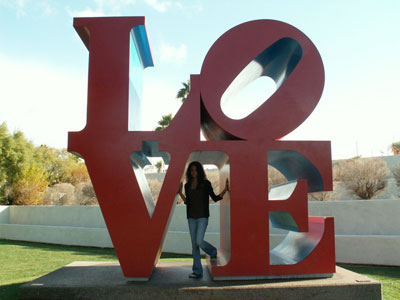All Nonfiction
- Bullying
- Books
- Academic
- Author Interviews
- Celebrity interviews
- College Articles
- College Essays
- Educator of the Year
- Heroes
- Interviews
- Memoir
- Personal Experience
- Sports
- Travel & Culture
All Opinions
- Bullying
- Current Events / Politics
- Discrimination
- Drugs / Alcohol / Smoking
- Entertainment / Celebrities
- Environment
- Love / Relationships
- Movies / Music / TV
- Pop Culture / Trends
- School / College
- Social Issues / Civics
- Spirituality / Religion
- Sports / Hobbies
All Hot Topics
- Bullying
- Community Service
- Environment
- Health
- Letters to the Editor
- Pride & Prejudice
- What Matters
- Back
Summer Guide
- Program Links
- Program Reviews
- Back
College Guide
- College Links
- College Reviews
- College Essays
- College Articles
- Back
About Time
In the slew of cliché rom-coms and tear-jerking dramas, About Time has brought the future of romance movies to the present. As the genre expands to actually coincide with the real world, realistic scenarios and legitimately awkward one liners are opening up the boundaries of what romantic movies can entail.
But what is it about romantic movies that draw people to theaters? Perhaps it is the desire we all have for screenplay worthy love; the dashingly infuriating male protagonist, the button-nose, blue-eyed female lead, and the bittersweet love that connects the two. Humans are naturally affectionate. We spend the first years of our life snuggled up to our mothers and aunts and older siblings. Playing off the desire that young adults still have for this type of warm affection is a market that movie producers have been making money off of for decades. Even before filmmaking was a profitable market, authors turned epic love stories into sold-out novels, that nowadays, are worshipped as some of the best literary works. Some of the most notable of these-Romeo and Juliet, Pride and Prejudice, and lastly, Wuthering Heights, all of which, have been made into several movie renditions, by the way.
If our own human instinct to be loved is being played off of by screenplay writers, why aren’t we storming their offices? Possibly, because we are fully aware of the fact that our human need is being targeted, and we are willing to throw away our money to these franchises. The classic romance movies are seen as predictable and girly, but as the target audience of these movies gain a more realistic view on relationships, the movies themselves grow realistic.
About Time itself tell the story of Tim, played by Domhnall Gleeson, an endearingly ginger Brit who wants nothing more in life than to be in love. His seemingly ordinary life is turned on to an unexpected path when his father, played by Bill Nighy, reveals that the men over the age of 21 in the family can travel back in time. While skeptical at first, Tim must learn how to adjust to living with a strange new ability and how he can use it to get a girl. Enter Rachel McAdams, who plays the lovable Mary, a girl that Tim cannot help but fall head over heels in love with. What makes this lovestory different from most romantic comedies, is the way the film focuses less on the small trials of a relationship and more on the life of a hopeless romantic with an incredible ability. The film does follow the couple through their ups and downs, but more than anything, offers incredible lessons in family relationships, love, and time, and how all three are woven together.
The film does have many of the characteristics of a classic rom-com, but offers so much more to the viewers. With a mix of bittersweet scenes and dry-humored comedy, About Time can hopefully pave the way for a more realistic and genuine movie market that can be enjoyed by all types of movie-goers.

Similar Articles
JOIN THE DISCUSSION
This article has 0 comments.
